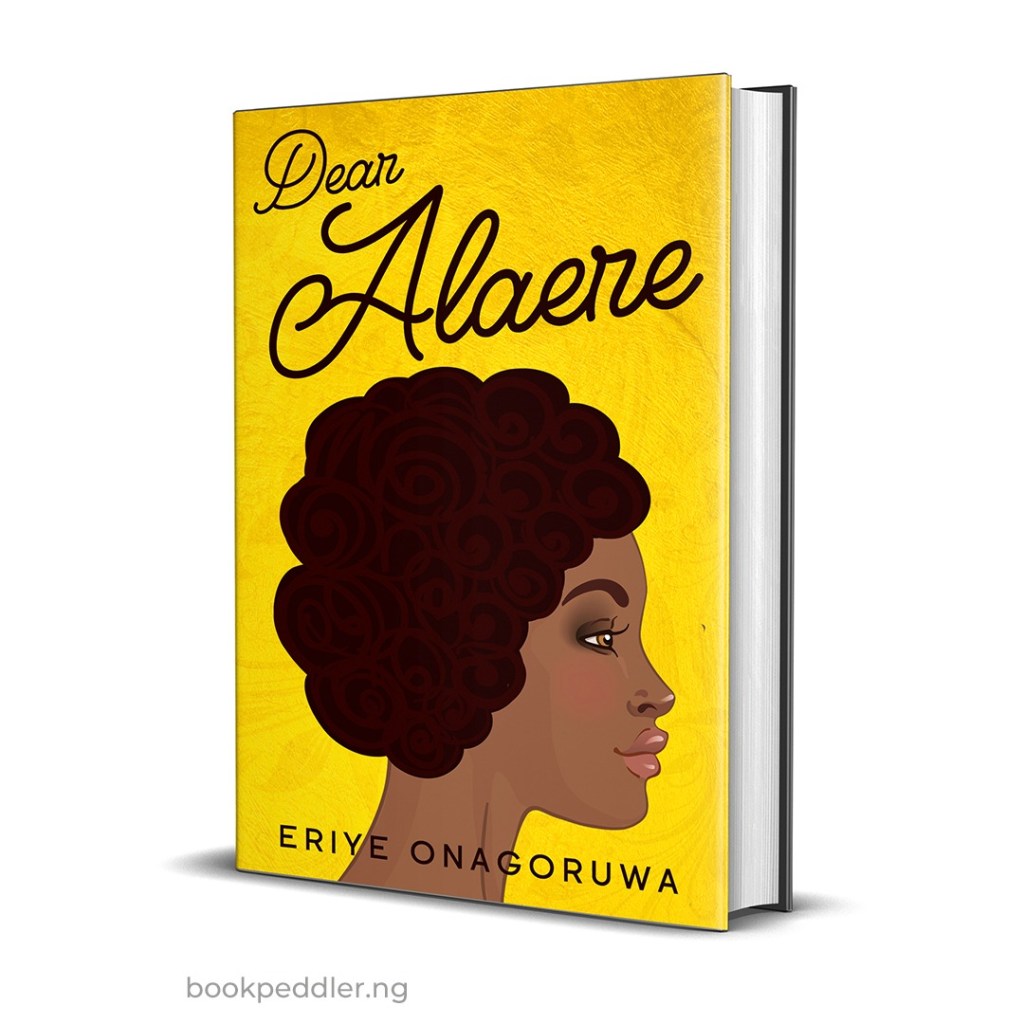Eriye Onagoruwa’s debut novel, Dear Alaere tells the story of Alaere Benson and her struggle to navigate challenges in both her family and work life. On the one hand, she meekly accepts responsibility for her husband’s oligospermia which is largely responsible for their childlessness, while on the other hand, her efforts to build a career in the corporate world is threatened by varying degrees of workplace shenanigans replete with situations that border on toxicity and even diabolic acts .
Alaere, the main character narrates this story in the first-person through a series of dairy entries, chronicling her experiences, pains, and wishes in sometimes witty but thoughtful posts. The space between her life at work and the situation at home is filled by Alhaji Wasiu, her rather talkative, driver who unlike Alaere enjoyed high fecundity, but with no male child to show for it. A situation he laments about on end and takes sometimes ridiculous actions to change.
Alaere’s world manages not to fall apart because of the love she and her husband ‘Laja share and her dedication to doing the right things at work despite the issues.
Set in Lagos, Eriye through this novel contributes to the important conversation around reproductive health in marriage and how the wives are often stigmatized even when the man’s condition is responsible for their childlessness. Many, like Alaere, endure the ignominy while keeping the truth to themselves in order to protect their husband’s pride. Others like Iya Segi in Lola Soneyin’s The Secret Lives of Baba Segi’s Wives find other means of getting pregnant which ensures that they secure their own happiness, while covering their husband’s shame.

The other major theme is around the intricacies of corporate environments. Eriye captures the hypocrisy, rivalry, scheming, harassments, gossip, and even mysticism at Criole, painting a picture many readers will find familiar. Those who have experienced or are active players in such circumstances will agree that it could be quite exhilarating and downright dangerous. Little wonder the binding and casting of enemies ‘at your place of work’, is a popular prayer point for many Nigerian men of God.
With these two broad themes, Dear Alaere packs a punch, but it really never lands it. The story doesn’t manage to rise to its potential nor convey the emotion that should make the reader feel, if not a part of Alaere’s story, at least, some sympathy for her. The novel does not quite hit the mark in the narration which could have been a lot more engaging, the development of the characters who remain largely one dimensional, the exploration of the themes which does not go deeper than the superficial and the expansion of the plot which is rather bland and predictable, culminating in a nollywoodesque ending.
As a debut fiction author one can understand some of these inadequacies many of which ought to have been addressed by a keen editor. There is for example, an excessive use of italics for different aspects of the story which I found jarring and confusing. A more detailed style definition by her editor should have taken care of this. I couldn’t get around the spelling of Igbo as “Ibo” nor the fact that every single email (and there were many) was typed out in the actual email format when a simple summary of what they conveyed would have sufficed.
The transition from one scene to another was often abrupt and disruptive. One-minute Alaere is having a conversation with a colleague at work and in the very next line she is speaking with her driver on their drive home. There were descriptions of certain scenes observed by the narrator from the window of a moving car that were too detailed to be plausible. More so, some sections of the novel felt like one was reading an article, with so much ‘telling’ and very little ‘showing.’ Perhaps that was Eriye’s persona as a writer of social commentary articles rearing its head. Equally, reading the work, one has very little sense of time. For example, between Alhaji Wasiu announcing his wife is pregnant and when his wife gives birth feels like only a few days have elapsed because the narration does not give any sense of the passage of nine months.
I must also add that when writing about cosmopolitan societies like Lagos, it is important that writers also take into consideration the sensibilities of their diverse readers. Perhaps unconsciously, Eriye appeared to have made the worst characters at work to be people of a particular tribe and it left the impression that those attributes were peculiar to them. The risk with this is in advancing certain stereotypes and unconscious biases which literature should be helping to dismantle and not encourage.
The lows of the work notwithstanding, one must observe that putting out a full-length work of fiction is no mean feat. The first time is the most tasking for many. The author’s passion for using words to interrogate societal issues comes through loudly. Dear Alaere excels in this regard as well as in the simplicity of the language and relatability of Alaere’s experiences.
With this book, Eriye announces her presence on the literary stage and I am confident that hers is a voice that will sing beautiful tunes as she continues to explore the intricacies of storytelling in this genre.
Eriye Onagoruwa | Paperworth Books, 2020 | 225 pages
Sylva Nze Ifedigbo is the author of My Mind Is No Longer Here. He is available on twitter at @nzesylva
Image courtesy bookpeddler.ng





